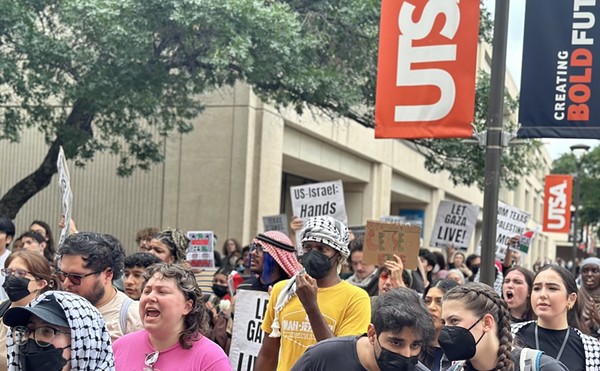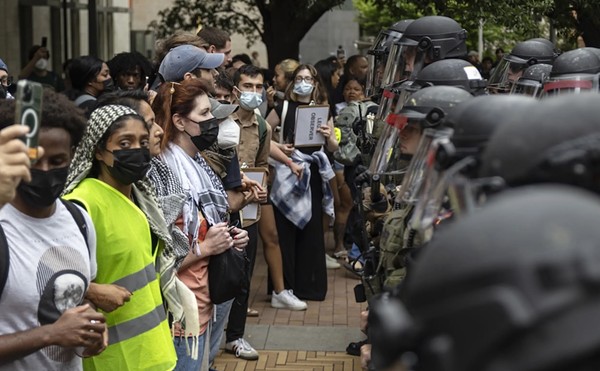How do you like them apples, Arizona? Even as Texas steps up border militarization via National Guard troops, many San Antonians cheered for the preliminary injunction against the controversial Arizona senate bill.
Had the entire bill gone into effect on its scheduled July 29 date, it would have effectively made being an illegal immigrant a state crime in Arizona. But U.S. District Court judge Susan Bolton, after hearing oral arguments on suits brought against Arizona by both the U.S. Department of Justice and human rights groups ACLU and MALDEF, barred several of the most ire-inducing elements from being implemented. Those included: requiring police to check the legal status of anyone under “reasonable suspicion” of being an illegal immigrant; requiring police to check immigration status before releasing arrested individuals; allowing warrantless arrests of foreign nationals if the alleged crime is punishable by deportation; and requiring all foreign nationals to carry papers proving their legal status in the U.S.
San Antonio resident Nina Perales, southwest legal counsel for MALDEF, was of counsel on that group's plea for the preliminary injunction and said they were pleased with Judge Bolton's order. “An independent immigration process is a very serious matter and very unconstitutional,” she said Monday. “What Arizona was trying to do was set up its own immigration system with its own set of crimes and its own enforcement that were distinct from federal policy.” Both the White House and the human rights coalition asking for the injunction argued that allowing a state to form immigration policy separate from federal policy encroached on the nation's constitutional responsibility and set a dangerous precedent. “The threat is a patchwork of immigigration schemes that cause interferrance with foreign policy and our relationship with other countries, and endanger U.S. citizens abroad,” said Perales.
Nadine Saliba, a member of the Esperanza Peace and Justice Center said “I had a great sense of relief when I first heard the news. I was pretty emotional. The prospect of what could have happened was awful.” However, she cautions, “Some of the most egregious elements have been stopped, but we can't forget other elements of the law are in effect now.” While Saliba, herself a non-Mexican immigrant to the U.S. uses the words “ridiculous,” “dangerous,” and “demumanizing,” to characterize the pieces of the bill not stayed by an injunction, including criminalizing the knowing transportation or harboring of illegal immigrants and hiring day laborers off the streets, Perales did not appear as worried. She noted the judge could still overturn that portion of the bill when she rules on it later this year, likely in November or later.
Both women agree that the injunction sends a clear message to the handful of legislators in other states, like Texas, seeking to introduce a similar bill. The Ninth Circuit Court of Appeals decision late on Friday not to expedite an appeal on the injunction hearing strengthens SB 1070 opponents' belief that the bill will ultimately be overturned. Even though this bill, and immigration issues, will rightfully continue to be hot-button issues during fall's mid-term elections “I think that this has taken the wind out of the sails of the most extreme anti-immigrant politicians,” said Perales. “They can't point to this law as an example as something states should do.”
















